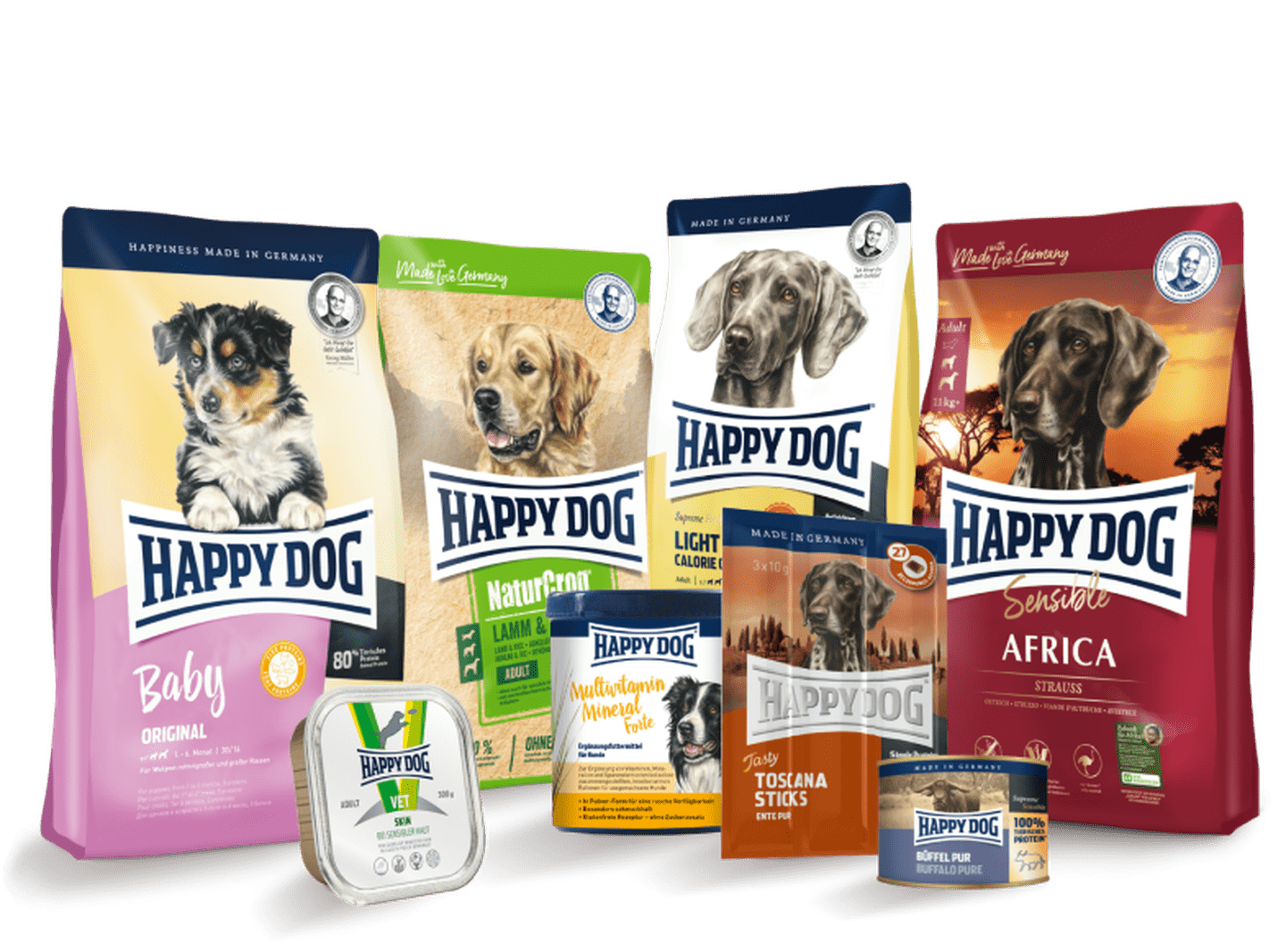An evolutionary study carried out by the University of Uppsala in Sweden in 2012 demonstrates that dogs and their feeding habits have evolved and changed in tandem with those of humans.
They found 30 copies of the gene that starts breaking down starch in the digestive tract, while wolves have just two of these genes. The scientists even found one specific variant of the gene needed to break starch down further that is exclusive to dogs.
This means that dogs are by no means purely carnivorous, although they are zoologically classified as a carnivore. A dog is really a carni-omnivore from a dietary viewpoint.
It is therefore better to offer pet food with a high, but not extremely high meat content. It would be even better to have a good understanding of what the meat content actually means. The Happy Dog brand brings transparency to this important question and lists the meat content as the proportion of animal protein to the total protein content.



